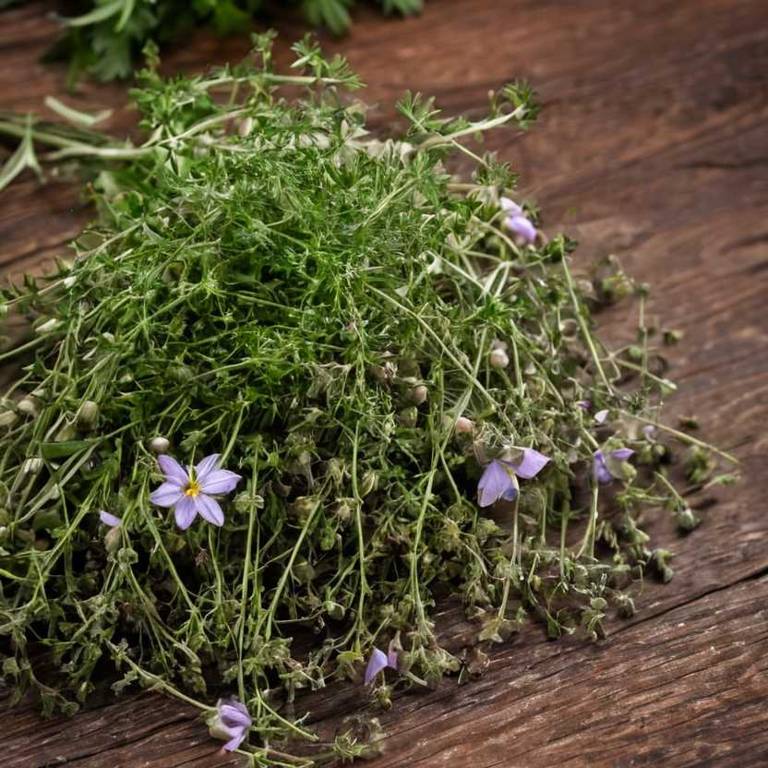Red Top (Centaurium erythraea)
Red Top (Centaurium erythraea) is a member of the Caryophyllaceae family, native to Europe, Western Asia, and North Africa. Traditionally, its flowers, leaves, and stems have been used for infusions, decoctions, and powders.
This herb is particularly valued for its bitter, tonic, and anti-inflammatory actions, and has a long history of use in european herbal medicine, mediterranean herbal traditions, and traditional chinese medicine.

Quick Facts / Key Information
| Common Name | Red Top |
|---|---|
| Scientific Name | Centaurium erythraea |
| Plant Family | Caryophyllaceae |
| Genus | Centaurium |
| Species | erythraea |
| Native Range | Europe, Western Asia, North Africa |
| Plant Parts Used | Flowers, Leaves, Stems |
| Primary Medicinal Actions | Bitter, Tonic, Anti-Inflammatory |
| Primary Traditional Systems | European Herbal Medicine, Mediterranean Herbal Traditions, Traditional Chinese Medicine |
| Historical Preparation Methods | Infusion, Decoction, Powder |
Botanical Identity
- Scientific Name
- Centaurium erythraea
- Common Name
- Red Top
- Synonyms / Alternative Names
- Common Centaury, Redmaids, Redhead
- Plant Family
- Caryophyllaceae
- Genus
- Centaurium
Botanical Description
- Growth Habit
- Perennial herbaceous plant.
- Height
- It typically grows to a height of 30 to 60 centimeters.
- Leaves
- Lanceolate leaves with dark green upper surface and lighter green lower surface, bearing distinct stomatal bands along the midrib.
- Flowers
- Inflorescence composed of solitary flowers with five distinct sepals and five petals arranged in a spiral, actinomorphic symmetry, with flowers displaying red to reddish-purple coloration and prominent yellow stamens.
- Stems
- Erect, unbranched, glabrous, four-sided, with opposite, sessile, lanceolate leaves and terminal clusters of red, tubular flowers.
Traditional Uses / Historical Use
Traditional Systems
- European Herbal Medicine
- Mediterranean Herbal Traditions
Historical Preparation Methods
- Infusion
- Decoction
- Powder
Medicinal Actions
- Bitter
- As described in traditional systems, a calming bitter, in bitter herb groupings.
- Tonic
- Traditionally described as a warming tonic, in general wellness contexts.
- Anti-inflammatory
- In herbal literature, noted as a moderate anti-inflammatory, in topical or internal use contexts.
- Astringent
- In herbal texts, considered a gentle astringent, in drying-focused uses.
Active Compounds
- Flavonoid
- A widely occurring class of plant polyphenols found in leaves, flowers, and fruits.
- Tannin
- High-molecular-weight phenolic compounds found in many plant species.
- Phenolic Acid
- A group of plant-derived compounds frequently identified in herbal material.
- Coumarin
- Plant-derived compounds often associated with fragrance-related chemistry.
Modern Research Overview
Scientific literature concerning this plant spans multiple areas, including phytochemistry and laboratory research. Detailed analysis of published studies is not included at this time and will be added as part of future editorial expansion.
Safety & Contraindications
- General Precautions
- Precautionary considerations have been reported in relation to this herb.
- Contraindications
- Available information does not clearly establish contraindications for the use of this herb.
- Allergies
- Allergic reactions associated with this herb have not been well documented.
- Drug Interactions
- Available information regarding interactions with pharmaceutical drugs is limited.
- Toxicity
- Toxic effects associated with this herb have not been well documented.
- Pregnancy & Breastfeeding
- Information addressing pregnancy and breastfeeding-related safety for this herb is limited.
Preparation & Usage Methods
- Infusion
- Water is poured over plant material and allowed to steep before straining.
- Decoction
- Decoctions are made by heating plant material in water for an extended time.
- Poultice
- A topical preparation made by applying softened plant material externally.
- Tincture
- Plant material is macerated in alcohol to create a concentrated liquid extract.
- Powder
- Plant parts are dried and mechanically reduced to a powdered form.
Growing, Harvesting & Storage
Growing / Cultivation
- Soil
- Prefers loamy soil with moderately well-drained conditions. Typically grows best in organically rich soils.
- Sunlight
- Thrives in partial shade. Tolerates full sun to partial shade.
- Watering
- Prefers well-balanced moisture levels. Tolerates periodic dry conditions.
Medical Disclaimer
The information provided on this page is for educational and informational purposes only. It is not intended to diagnose, treat, cure, or prevent any medical condition. Always consult a qualified healthcare professional before using any herb for medicinal purposes.